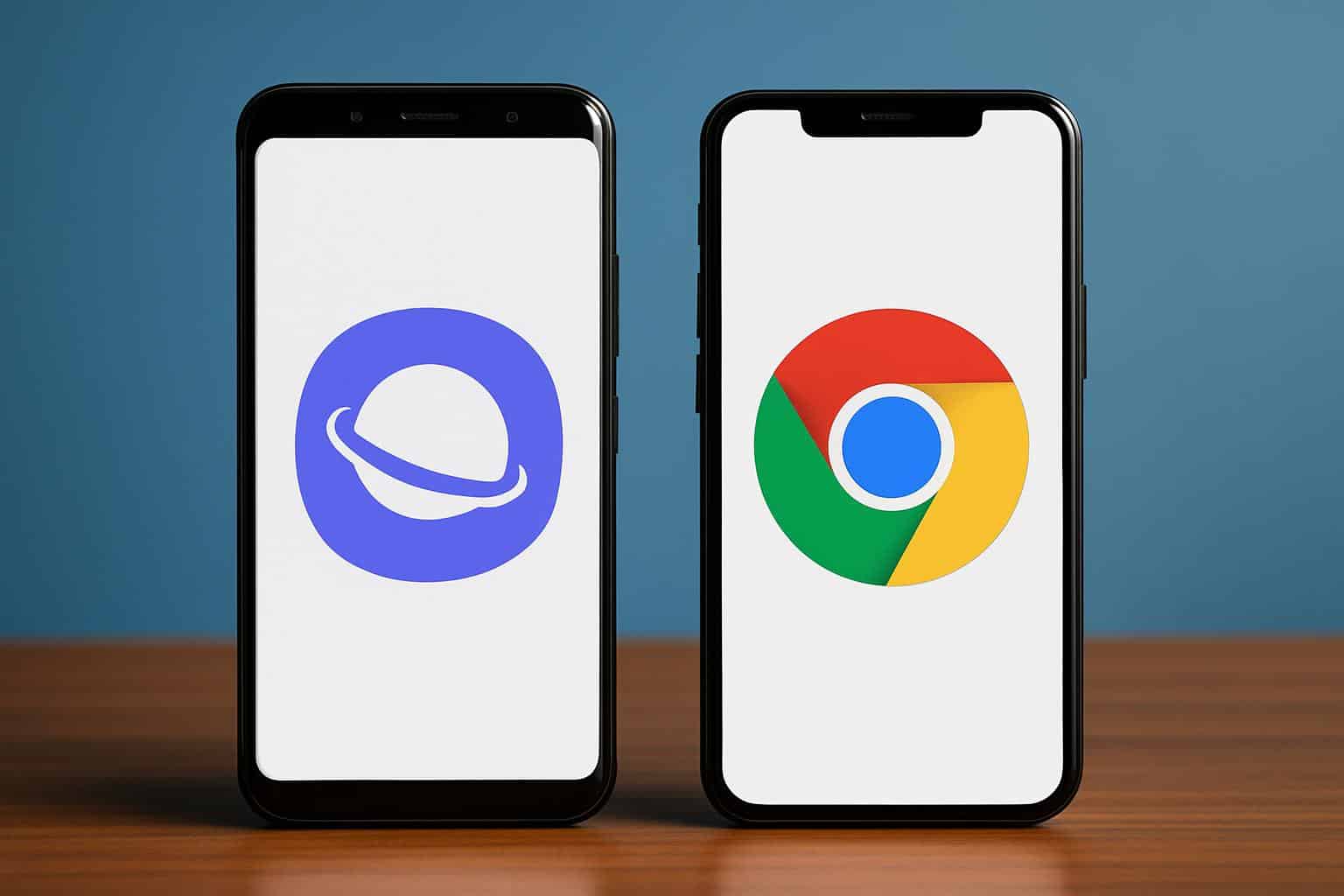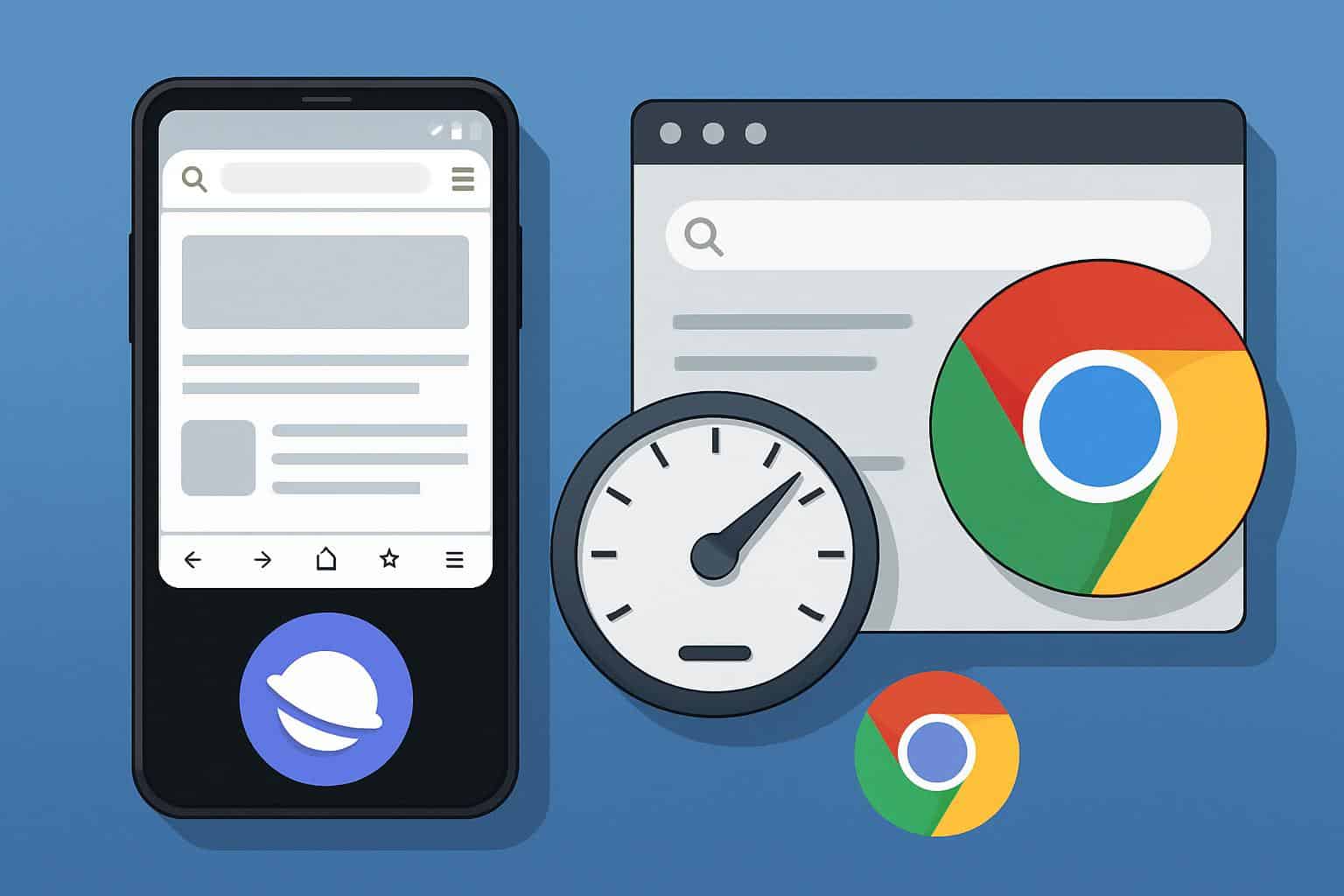Chrome might be the choice for millions of Android users, but it isn’t automatically the best one for everybody. Discontinued as a standalone app in 2015 and now built into Samsung’s devices, the company’s browser is a feature-packed powerhouse you can install on nearly any phone running Android that offers up more options than Chrome for setting your own preferences.
Chrome continues to dominate the market for mobile browsers globally, based on data from StatCounter, and is a speed champion in common measurements like Speedometer 3 from the Web Performance Working Group. But the real-world experience is more than raw speed. For a lot of people, it’s less about everything being everywhere and more about having the right tools in the right places — and that is exactly where Samsung Internet excels.

Adaptable Controls And Ergonomics Designed To Fit Your Hand
With Samsung Internet, you can customize the toolbar on the bottom, instead of changing how you browse. Whether it’s free-throw mid-range; you should be able to drop those right below where your thumb will naturally rest on Steam Deck. Need fast access to forward, share or incognito mode? Pin them. Prefer a lean layout? Turn the toolbar into only an essential.
This ergonomic flexibility cuts down on taps and “hand gymnastics.” The long-press actions are nicely done also, with holding down the tabs icon launching a new tab immediately, and doing the same on the home button locking straight to search without having to attack an address bar. Now Chrome has a (barely customized) bottom bar, with limited customization and secondary actions buried behind further menus.
Better Privacy Options And Ad Blocking Support
On Samsung Internet, content blockers can curb the ceaseless jibber-jabber of most ad and tracker spam on mobile — a feature Chrome for Android doesn’t directly offer out of the box. That’s important for both page clutter and privacy. The fewer the trackers, the fewer the requests and less data leakage — an analogue for what privacy advocates like the Electronic Frontier Foundation have been saying for years.
Well into the blockers, Samsung has baked in a Smart anti-tracking feature and a clear Privacy Dashboard to see what’s not happening; until you lock it behind your biometrics or PIN, that is. Chrome has made some gains in the area of privacy, with its Enhanced Safe Browsing protections and overarching Privacy Sandbox project — but on Android, the absence of extension-style content blockers is still a pretty glaring hole.

Full Page Dark Mode And Reader-Friendly Tools
Samsung Internet’s dark mode is capable of inverting page colors for almost any site, not just the browser chrome. For OLED phones, it’s not just a cosmetic tweak: A study from Purdue University shows that dark interfaces can significantly reduce power draw at higher brightness levels — so dark mode is also easier on your eyes for reading at night.
There is also a splendid reader mode that clears away the gunk, allows you to adjust font size and spacing, and centers on article text. Chrome provides a stripped down view in certain cases as does this separate Reading Mode app on Android, but Samsung’s one-tap, in-browser method is faster and more consistent for scanning long-form content.
Smarter Start Page And Time-Saving Shortcuts
The home page in Samsung Internet centers around a customizable Quick Access grid. You select which sites to place, and in what order — the full grid is always on view. Chrome’s start shortcuts, on the other hand, are predominantly auto-generated based off of your browsing history and placed in a scrolling row that can feel less transparent and more difficult to curate.
Little efficiencies add up. You can open an incognito session in just one tap if you pin Secret mode to the toolbar. With Video Assistant controls, you have fast access to playback speed, pop-up player and full-screen tools without navigating nested menus. And signs like Scroll Capture and high-contrast mode make everyday tasks even easier without having to download expensive third-party apps.
None of this is to discount Chrome’s strengths. Nothing else is available with its cross-platform footprint and deep integration with Google’s services, among them password sync and autofill. It might not win when you just look at list of features — what sort of app does? — but considering real-world ergonomics every day, as well as privacy controls, reading comfort and productivity on its start page, Samsung Internet makes an attentively persuasive argument for itself as the Android browser to beat in actual use.

